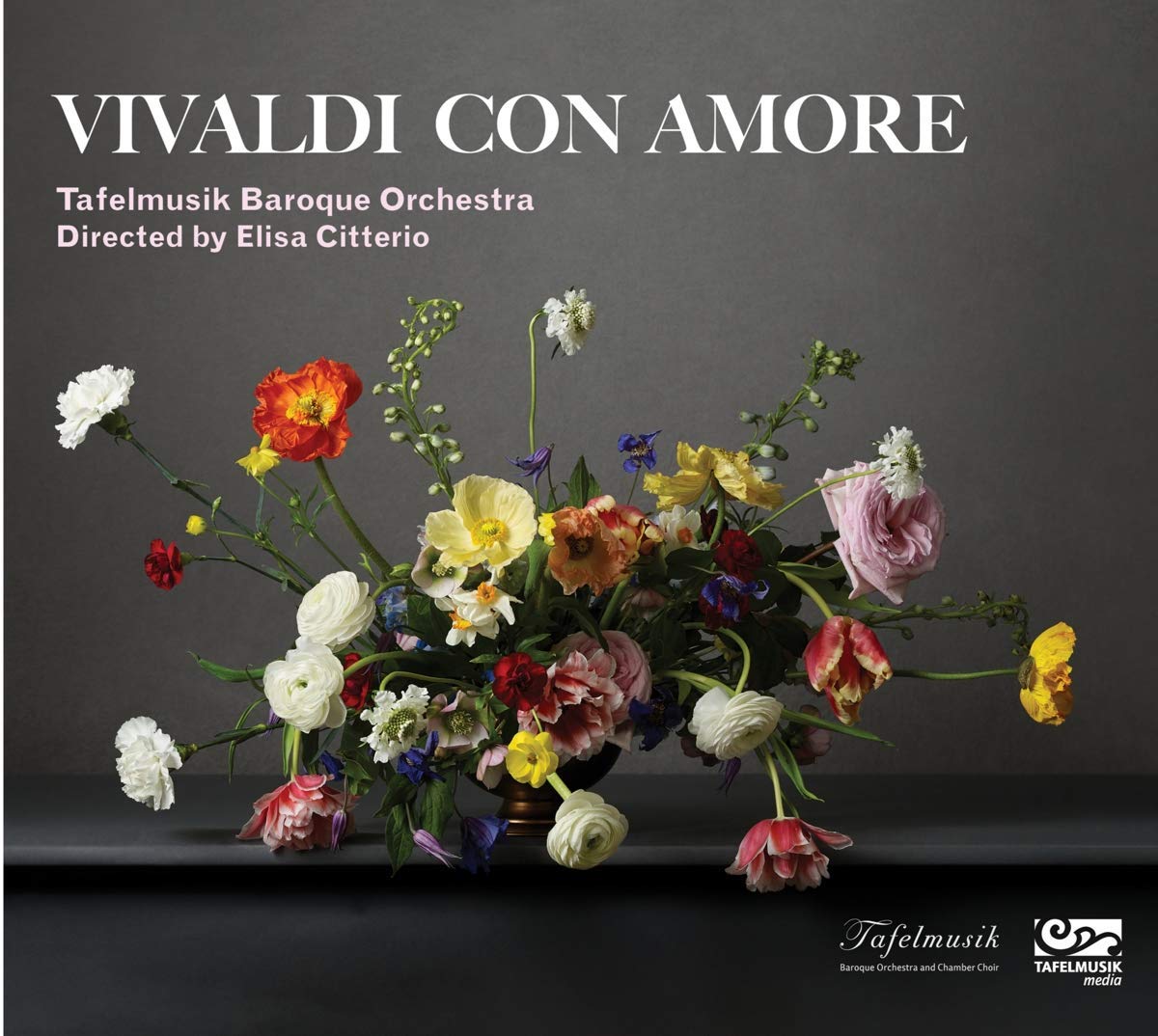Tafelmusik Baroque Orchestra, Elisa Citterio, dir
75:25
Tafelmusik TMK1039CD
For nearly forty years Tafelmusik, Canada’s leading period instrument orchestra, was directed by violinist Jeanne Lamon, but in 2017 she was succeeded by another woman violinist, the Italian Elisa Citterio. The present collection of Vivaldi concertos marks Citterio’s recording debut with the orchestra, and it is interesting to find that on the basis of it she has already put a strong individual mark. Citterio’s background includes work with all the major Italian period instrument orchestras and there are times here when we might almost be listening to Accademia Bizantina or Il Giardino Armonico. There is the same nervous, at times spiky, intensity brought to Vivaldi’s allegros, the same grand sweep to ritornellos, the same relishing of long cantabile lines, and the same careful dynamic gradations. Yet even in writing that I’m conscious of being slightly unfair to Citterio, since one of the principal positives of this outstanding set of performances is that they reveal she has a strong musical personality. There is hardly a routine moment here, no mean achievement when it comes to a batch of Vivaldi concertos. Take for example the popular Lute Concerto in D, RV 93, hardly a masterpiece and a work that can easily outstay its welcome. Superbly played throughout by Lucas Harris, the opening movement is here given an understated delicacy that introduces an unexpected aura of mystery. The following Largo is taken very slowly, but enriched by decoration from the soloist that gives the movement an improvisatory freshness, while the final movement is again unassertively presented, but distinguished by the precision of Harris’ fingerwork.
This freshness of approach is a feature of the whole programme, which has been well planned to include a diverse set of concertos that allows some of Tafelmusik’s outstanding players an chance to shine. Thus in addition to the lute concerto we are given violin concertos in C minor (RV 761), known as ‘Amato bene’, and E major, the well-known ‘L’amoroso’ (RV 271), the 4-violin Concerto in B flat, RV 553, a double oboe Concerto in C, RV 534, a bassoon Concerto in D minor, RV 481 and the Concerto in D for 2 violins and 2 oboes, RV 564a. The programme is completed by the overture to the opera Ottone in villa (Venice, 1713).
Among these works, the two minor key concertos are exceptional. The nervous intensity and restless spirit of the opening Allegro of the C minor Concerto are splendidly captured by Elisa Citterio, while the filigree of the marvellous central Largo, taken rather too slowly, is spun with affectionate elegance and the final Allegro played with a bright edginess that does not exclude moments of fantasy and bizzarrie also apparent elsewhere in Citterio’s playing. The bassoon concerto is another outstanding work, played quite superlatively by Dominic Teresi. In the opening Allegro the soloist alternates the slighty mournful tones unique to his instrument with gurgling passage work, while the chromatic dissonance of the succeeding Larghetto, a quasi accompanied recitative and love-sick aria, reaches depths of profound desolation.
My only reservations concern the tempo of largos; it is odd to find Citterio taking the Adagio non molto central movement of RV 564a at a faster tempo than most of them, while the familiar Italian fondness for over-intrusive plucked continuo is here particularly annoying in the central Largo of RV 553. Tafelmusik’s CD production people might also care to consider rather better notes than the scanty generalised effort included here. None of that detracts from the fact that this is the most stimulating and thought provoking CD of Vivaldi concertos I’ve heard in some while.
Brian Robins
Click here to buy the CD on amazon.co.uk.
